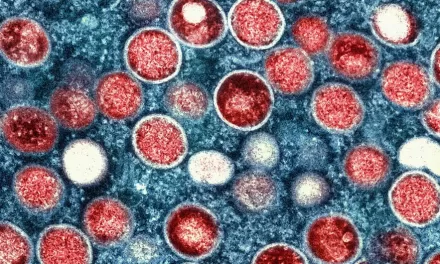In the ongoing battle against cancer, T cells have long been hailed as the body’s frontline defenders, capable of seeking out and destroying malignant cells with precision. However, a groundbreaking study led by researchers at the UNC Lineberger Comprehensive Cancer Center has shed light on a previously elusive phenomenon: the dwindling energy reserves of T cells once they infiltrate solid tumors.
Headed by Jessica Thaxton, PhD, MsCR, associate professor of cell biology and physiology at UNC Lineberger, the research team delved into the intricacies of tumor immunity and metabolism to unravel why T cells struggle to maintain their energy levels within solid tumor environments. Led by Katie Hurst, MPH, and fourth-year graduate student Ellie Hunt, the team identified a metabolic enzyme called Acetyl-CoA Carboxylase (ACC) as the culprit behind T cells’ energy depletion in tumors.
“Our discovery fills a long-standing gap in knowledge regarding why T cells in solid tumors don’t appropriately generate energy,” explained Thaxton. “By inhibiting the expression of ACC in mouse cancer models, we observed that T cells were able to persist much better in solid tumors.”
Published in Cell Metabolism, the study’s findings offer promising implications for the optimization of T-cell therapies in cancer treatment, including checkpoint inhibitors and chimeric antigen receptor (CAR) T-cell therapies.
Thaxton’s lab previously identified ACC as a key player limiting T cells’ ability to produce adenosine triphosphate (ATP), the cellular energy source, within tumors. ACC, crucial for various metabolic pathways, impedes the breakdown of fat for energy utilization in mitochondria.
Through advanced imaging techniques and genetic manipulations, the research team demonstrated that inhibiting ACC led to a significant reduction in lipid storage in T cells, enabling them to mobilize fats for energy production.
“We observed fat relocating to the mitochondria, indicating that T cells may require a delicate balance of lipids to persist in solid tumors,” elaborated Thaxton.
Moreover, the findings hold promise for enhancing CAR T-cell therapies, a cutting-edge approach that engineers T cells to target cancer cells. Preliminary data suggests that even engineered T cells harbor excess lipid stores, underscoring the relevance of targeting ACC in boosting their efficacy.
Moving forward, Thaxton’s team aims to explore ways to modulate ACC directly within patient tumors, potentially eliminating the need for ex vivo T cell manipulation. However, the researchers acknowledge the need for further investigation into potential impacts on other immune cell populations.
As scientists continue to unravel the complexities of tumor immunity and metabolism, discoveries like this offer hope for more effective and targeted cancer treatments, bringing us one step closer to defeating this formidable disease.












